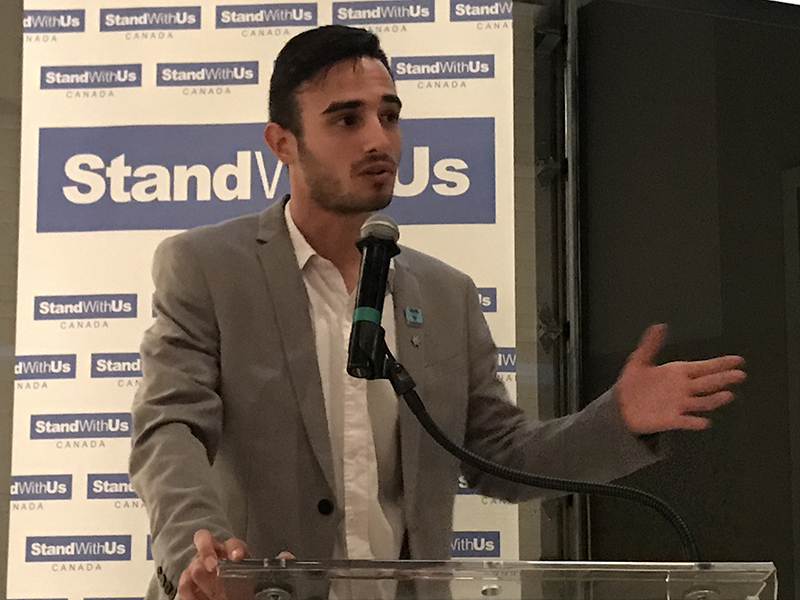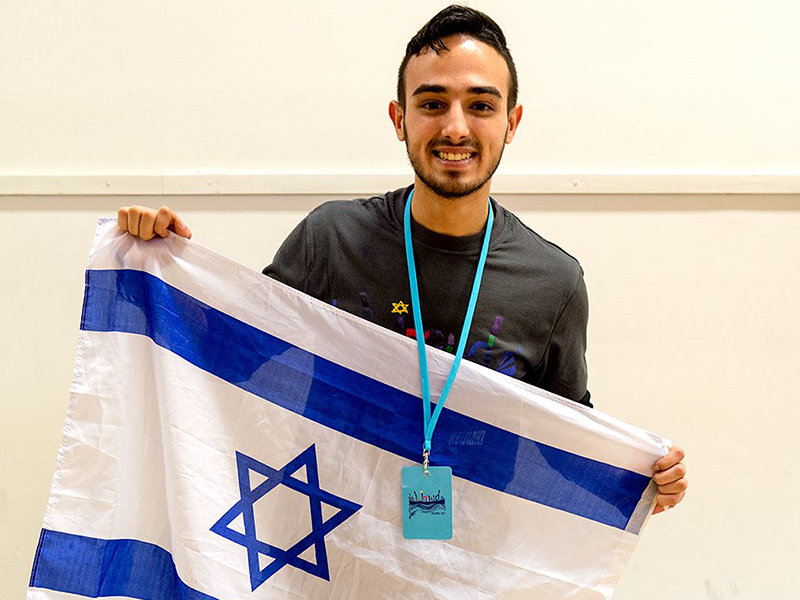Yahya Mahamid’s journey to becoming an outspoken advocate for Israel – or, as he calls himself, a “Muslim Zionist” – was unintentional.
The 20-year-old Israeli-Arab who grew up in Umm el-Fahm, one of Israel’s largest Arab cities, described his hometown as a “stronghold of the anti-Israel movement within Israel.”
“I grew up very anti-Israel, to the point where I was bashing Israel and the IDF,” he said.
“We have religious extremists, political extremists and, to put it in perspective, the recent terror attacks that happened on the Temple Mount that killed two policemen, the gunmen who carried out this attack were from my home town.”
He said that despite having been educated in schools that taught the Israeli curriculum, there was always “white noise in the background that introduces a lot of lies, misinformation and content that would make you feel like you are distant, or isolated, from the Israeli community. That is the goal of the people who control my municipality.”
Mahamid said the motivation behind the promotion of the “us-versus-them” mentality is power and money.
READ: ANTI-ISRAEL ADS COUNTERED BY STANDWITHUS
“As my friend said, ‘Peace doesn’t make a lot of money, but war does.’ They are in power positions.… It’s in their benefit to keep the situation the way it is,” he said.
“In my town, I can tell you, after tax collection and stuff, all of (the) sudden, officials have brand new cars and it’s disgusting, but that’s the way it is.”
Mahamid said his awakening to the indoctrination in his town was gradual.
He recalled meeting a Chabadnik in 2014, while he was working at a hotel in Tel Aviv.
“He asked me if I had put tfillin on that morning,” said Mahamid. “I told him I wasn’t Jewish and he said, ‘It doesn’t matter if you’re Jewish, what matters is if you’re a good person.’ From that moment on, I decided to start rethinking everything I had been taught about Israelis.”
But it was the 2014 kidnapping and subsequent murder of three Jewish teens by Hamas that compelled him to become an activist.

He learned about a campaign called Bring Back Our Boys and chose to show his support for it by posting a picture of himself with an Israeli flag online. Although he faced a backlash from the townspeople, he still chose to volunteer with StandWithUs, which led to a career as an educator with the Israel advocacy organization in 2016.
But his career choice came with a price. “Over Passover, I made a video for StandWithUs, telling my story. And I said I want to be just like any other Israeli, I want to serve in the IDF and give back to my country,” he said.
“They took the part where I said I wanted to join the IDF and made it a headline in the local news. The police in the town started hearing chatter about people being angry and they told me I must move.”
About six months ago, he relocated to Jerusalem.
Mahamid – who spoke to The CJN in October, while he was on a Canadian tour of Toronto, Montreal, Vancouver and Winnipeg – said the feedback from the communities he visits on behalf of StandWithUs is always positive.
Earlier this year, Mahamid travelled to with a delegation to South Africa, where he worked with Jewish students in Johannesburg to counter Israeli Apartheid Week (IAW).
‘I want to be just like any other Israeli.’
He said the fact that the StandWithUs delegation is comprised of minorities contradicted the anti-Israel students’ narrative.
“I was there, we had Ethiopians, we had Russians – so the message that Israel was oppressing minorities was not working. They got violent with us physically and the normal, every day student that isn’t Jewish and doesn’t know anything about Israel and Palestine saw what was going on and gave us more support,” he said.
He recalled a conversation with one of the IAW organizers, who he learned was a Muslim from India who was studying medicine.
“The day before, he had a big Hezbollah flag, waving it in my face, shouting, ‘Free, free Palestine,’ while I held the Israeli flag and sang Hatikvah. After that heated situation, I said, ‘I’m sorry if we shouted at each other.’ I asked him if he’d heard of the PillCam, and told him that it is an Israeli invention that has revolutionized the medical industry. All I know is that now he has an idea of Israel that doesn’t involve the conflict,” said Mahamid.
The hope, he said, is that by humanizing Israelis and putting faces to names, “it is much easier to understand them.”










